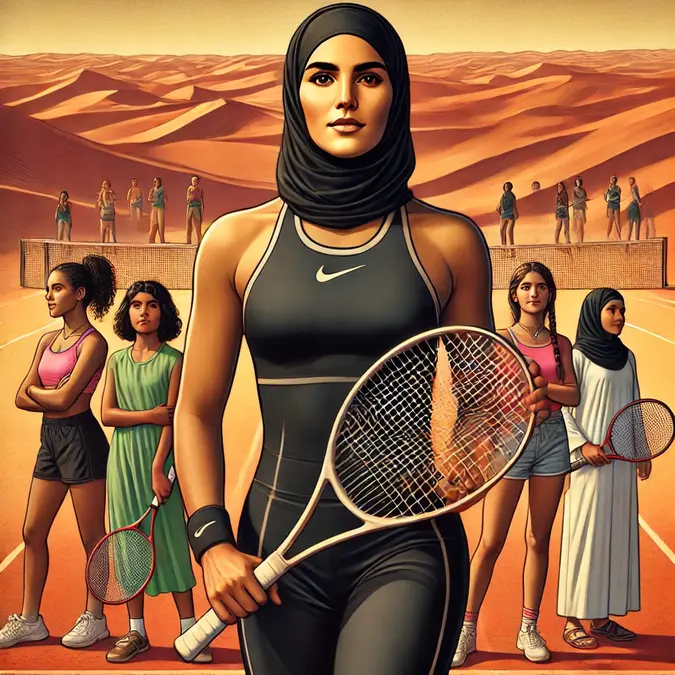Ons Jabeur didn’t walk away from tennis because she stopped loving it — she did it because that love started to hurt. Speaking in Riyadh this week, the Tunisian star opened up about her decision to take an indefinite break after Wimbledon 2024, describing a painful emotional shift that even she hadn’t seen coming.
“The happy place — the place where I found my joy — suddenly became my sadness,” Jabeur said.
After two grueling seasons filled with injuries, near-misses, and emotional burnout, the former World No. 2 reached her limit.
“I felt like I needed to put myself first for once,” she said. “To breathe, to heal, to remember what happiness feels like.”
Now, four months later, Jabeur is back at the WTA Finals — not as a competitor, but as an ambassador, standing on the sidelines with perspective that only distance can bring.
Learning to Live Beyond the Baseline
Since pressing pause on her career, Jabeur has rediscovered life beyond the daily grind of training blocks and time zones. She’s thrown herself into her Ons Jabeur Foundation and her soon-to-launch academy in Dubai, projects aimed at giving back and inspiring the next generation.
“My break is going well. I’m discovering life a little bit outside tennis,” she said. “I’ve been busy — the foundation, the academy, new ideas. It’s been fun.”
The early days were strange, she admits. Going from six-hour practice days to stillness felt unnatural. “I was like, ‘What am I even doing with myself?’” she laughed. But with time, she began to enjoy small routines again — mornings without alarms, dinners with family, life without scoreboards.
When Joy Turns into Pressure
The decision to step away came after a stretch that tested her mentally as much as physically. Jabeur had carried the hopes of an entire region as the first Arab woman to reach multiple Grand Slam finals. But that weight, combined with injuries and heartbreak, took its toll.
“Trying to find happiness outside tennis was hard,” she admitted. “The court had always been my safe place. Then suddenly, it became the place that gave me sadness. I remember thinking, ‘What if I never love it again?’”
She’s not rushing back. “When my mind and my body tell me I’m ready — that’s when I’ll come back,” she said. The break isn’t about walking away; it’s about coming back stronger, on her own terms.
Her honesty has struck a chord. “A lot of players reached out,” she said. “They told me they saw themselves in what I said. That made me feel like I wasn’t just helping myself, but helping them too.”
Redefining Success and Speaking Up
When Jabeur returns, she plans to take ownership of her schedule — and her sanity.
“I want to pick my tournaments. I want the schedule to fit me, not the other way around,” she said. “And I’m going to speak up more — we need to be treated like human beings, not robots who just play tennis, tennis, tennis.”
It’s a call that echoes a broader conversation across the sport — about burnout, endless calendars, and the cost of chasing perfection.
And while Jabeur’s passion still burns, she’s also found the grace to acknowledge her limits. The fiery outbursts that once punctuated her matches have been replaced by a softer, more reflective tone.
Finding Meaning Again
Through her foundation, Jabeur is rebuilding the tennis court at her old primary school in Tunisia — a symbolic full-circle project. Her Dubai academy, focused on youth development and mentorship, opens later this month.
“Maybe it’s how I’ll find my joy again,” she said. “When I see the kids, their innocence, their love for the game — it reminds me why I started.”
Jabeur’s next serve, whenever it comes, won’t just be about rankings or trophies. It’ll be about purpose.
“I want to live a meaningful life,” she said. “Not just breathe and eat and do the same thing every day. Even if I don’t get back to where I was, I won’t put that pressure on myself. What matters most is being happy — on the court, and off it.”

